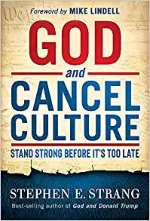How I Experienced Foreshadowing of Critical Race Theory in the 1980s
In the 1980s, I was in my 30s, and I was very involved in trying to build bridges between Blacks and whites—mainly within Pentecostal and charismatic circles. Charisma magazine was only about 10 to 12 years old at the time.
But long before that, I had been writing editorials about racial reconciliation, going back to my high school days in Lakeland, Florida, when I worked for the student newspaper. In those days, the state of Florida was just beginning to integrate its schools.
I guess you can say that I have been an advocate for racial reconciliation for almost my entire life. So, I was surprised—nay, shocked—when I was dubbed a racist back in the late 1980s. Allow me to give you some of the backstory.
Jamie Buckingham, my late mentor, officially took on the editorship of Ministry Today magazine, our magazine for pastors. I turned it over to him, and he was brilliant. He picked different people to write columns on various topics affecting ministry. Buckingham had a friend, someone I did not know at the time, whom he asked to write a column called “The Black Experience.” It ran in the magazine for a couple of years.
But as a time passed, we made a business decision to rotate columns. I have no interest in embarrassing this man in any way, and I certainly won’t mention his name. But it seemed he felt as though he were entitled to write that column. I found out later that, within his circles, it was considered important that he had a regular column in a so-called white magazine, although we didn’t think of ourselves that way at all.
In his own circles, he let it be known that he was highly offended that we dropped his column, and he went around telling people I was a racist. He felt that somehow we were belittling a Black man with our editorial decision.
I was shocked. First of all, I wasn’t close to the decisions that were made. Second, I was in high gear trying to build bridges between the white and Black communities. I had never been called a racist. It’s become almost a cliché for people to say, “I don’t I have a racist bone in my body.” But nowadays, if you object to being called a racist, there are some people who say that proves you’re a racist. I don’t agree with that idea at all.
Nobody has called me a racist since that experience, and you can tell I feel passionately about this topic. It’s something I’ve studied as a journalist, and it’s something I’ve lived. I have had hundreds of hours of conversations about this over the years, and I really want to understand about this subject that is a plague on our society.
 I want to continue to build bridges with the platforms God has given me. Charisma Media will continue to try to break this demonic hold the enemy has on our country. I just wanted to tell you this story and let you know that if someone calls you a racist, it doesn’t necessarily make you one.
I want to continue to build bridges with the platforms God has given me. Charisma Media will continue to try to break this demonic hold the enemy has on our country. I just wanted to tell you this story and let you know that if someone calls you a racist, it doesn’t necessarily make you one.
You can hear the rest of this story—and it’s one you will really want to listen to— on this podcast episode, “Stephen Strang; When I was Called a Racist.” And I want to encourage you to order my new book God and Cancel Culture. I’ve also started a new podcast called God and Cancel Culture that I think you’ll find very interesting and want to start downloading immediately.
Please spread the word about it to your followers on social media. Be sure to subscribe to the Strang Report on Apple Podcasts or your favorite podcast platform for more podcasts to inspire you to experience the power of the Holy Spirit. {eoa}
For more information on how you can fight back against cancel culture, make sure to get a copy of what Charisma founder and CEO Stephen Strang says is his most important book yet. God and Cancel Culture releases Sept. 7, the day after Labor Day, wherever fine books are sold. Pre-order it at stevestrangbooks.com or on Amazon.
Read articles like this one and other Spirit-led content in our new platform, CHARISMA PLUS.




























































